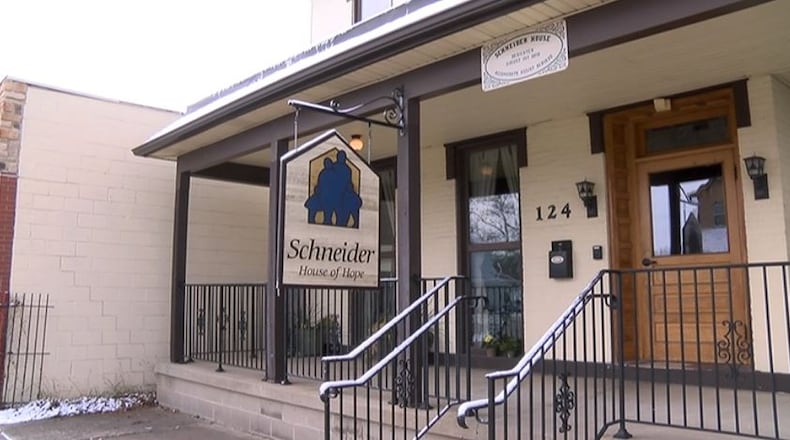Between 60 and 70% of guests move on to find permanent housing after their stay. In 2021, Family Promise assisted 119 people across 44 households, and of those, 80 individuals were able to find housing in the area.
However, choices for affordable housing are becoming slimmer, and families are having to work harder to find a permanent place to live.
Previously, families would stay in the shelter for 60 days. However, earlier this year, the shelter extended the program to 90 days, and then extendable on a week-by-week basis until the family finds housing.
“There has been a struggle for a lot of families to find housing because everybody’s going for the same house,” said director Deanna McCrary. “When COVID started, everybody had a pause on having to pay their rent. Now that that is lifted, the housing market’s up and houses are being sold quickly.”
Family Promise also provides parenting classes and nutrition classes for families at the shelter, as well as case management for a year after finding permanent housing to make sure they don’t lose shelter again. Those approaching the 60- or 90-day limit in the shelter have goals that they need to make, such as looking for jobs, and taking GED classes, McCrary said.
“So if they’re progressing and the only issue that they have is finding housing, we’re going to walk with them until they get that housing,” she said.
Officials said fewer and fewer properties are taking housing choice vouchers, more commonly known as Section 8, as rents continue to skyrocket.
The shortage of Section 8 housing — and housing in general — is a nationwide problem for several reasons, said Brenda Smallwood, executive director of the Greene Metropolitan Housing Authority.
“We’ve seen it coming. When the tornado hit, a lot of people that lost homes went into rental housing,” Smallwood said, referring to the 2019 Memorial Day tornadoes that swept through the Dayton area.
Landlords renting to people who were previously able to afford homes are subsequently able to charge more money, squeezing the rest of the housing market down.
Additionally, with the housing price boom of the past few years, many landlords saw an avenue to cash out of the business, or turn their properties into Airbnbs. The hot housing market meant that property owners were able to sell their properties for “outrageous” amounts of money, simultaneously divesting themselves of the headache of being a landlord, Smallwood said.
“The majority of units we lost is because (property owners) got out of the business,” she said.
Greene Metropolitan Housing Authority works with close to 400 landlords, some of whom are inactive, Smallwood said. Greene Met has a maximum capacity of 1,445 households. Typically, the housing authority has approximately 1,000 people on their waiting list.
Open units also go fast, said Angela Shockley, Section 8 supervisor at Greene Met.
“If a client got a voucher today, it’s not impossible for them to be housed within a week, provided they get their paperwork done and the unit passes inspection,” she said.
Greene Met is working with the U.S. Department of Housing and Urban Development to find solutions, Smallwood said. One of those is raising voucher amounts to get closer to fair market rent, as well as working with some landlords who are building more housing. Greene Met owns about 400 units themselves, which are full most of the time, Shockley said.
“We are doing everything we can at this point to try and get our clients housing,” Shockley said.
About the Author

